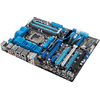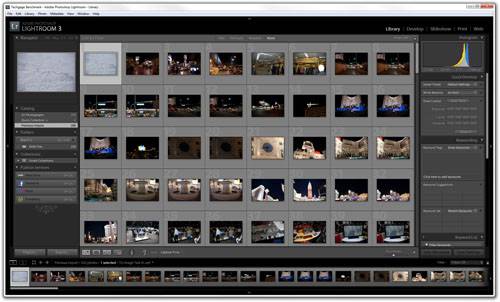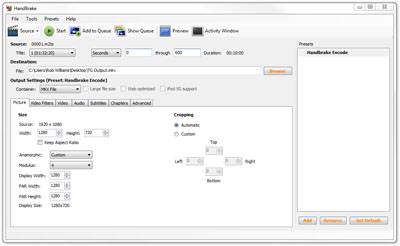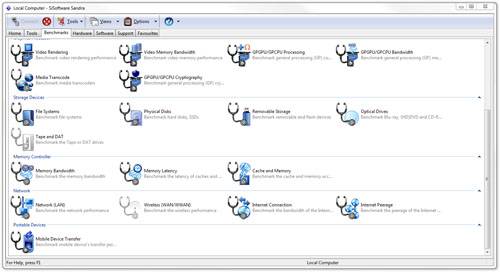- Qualcomm Launches Snapdragon 4 Gen 2 Mobile Platform
- AMD Launches Ryzen PRO 7000 Series Mobile & Desktop Platform
- Intel Launches Sleek Single-Slot Arc Pro A60 Workstation Graphics Card
- NVIDIA Announces Latest Ada Lovelace Additions: GeForce RTX 4060 Ti & RTX 4060
- Maxon Redshift With AMD Radeon GPU Rendering Support Now Available
Intel P67 Roundup: ASUS, GIGABYTE, Intel & MSI

We’ve been a little short on motherboard content lately, so to kick things back into action we’re taking a look at four P67-based motherboards at once – all benchmarked using our newly revised test suite. The boards we’re looking at are the ASUS P8P67 Deluxe, GIGABYTE P67A-UD4, Intel DP67BG and MSI P67A-GD65.
Page 15 – Applications: Adobe Lightroom 3.3; Handbrake & Sandra 2011 SP1x
Photo manipulation benchmarks are more relevant than ever, given the proliferation of high-end digital photography hardware. For this benchmark, we test the system’s handling of RAW photo data using Adobe Lightroom, an excellent RAW photo editor and organizer that’s easy to use and looks fantastic.
For our testing, we take 250 RAW files (in Nikon’s .NEF file format) which have a 10-megapixel resolution, and export them as JPEG files in 1000×669 resolution, similar to most of the photos we use here on the website. Such a result could also be easily distributed online or saved as a low-resolution backup. This test involves not only scaling of the image itself, but encoding in a different image format. The test is timed indirectly using a stopwatch, and times are accurate to within +/- 1.00 seconds.

Although Lightroom doesn’t take advantage of all the threads that a CPU has to offer, it does benefit from faster overall single-threaded performance. For that reason, ASUS out-performs the pack once again. The others all ranked close to each other, with a minor 4.4 second delta between the top and bottom – not bad for a process that takes about five minutes.
Handbrake
The task of photo editing can be made a lot easier with a faster computer, but nothing is quite so apt to benefit from a speed-boost than a video encode. With mobile phones and similar devices being as popular as they are, it’s little surprise that a lot of people like to encode their HD videos to something a bit more manageable.
While some encodes might take minutes, others can take hours, and to get a more accurate look at overall endurance and both CPU and I/O performance, we use the popular Handbrake encoder to take a 1080p Blu-ray movie and encode it to a 720p archival-quality MKV. The settings used here are not for the feint of heart (the encode times are for just the first 10 minutes of the film). These are the same settings I use when encoding a film for archival purposes – whether it’s a Blu-ray or DVD.

As one might have guessed, video encoding is about as CPU-dependant as it can get, and thanks to ASUS’ CPU frequency boost, it again wins this round. Similar to our Lightroom results, the other boards perform just about the same, with super-minimal differences between them.
Sandra 2011 SP1x
SiSoftware’s Sandra is a piece of software that needs no introduction.It’s been around as long as the Internet, and has long provided both diagnostic and benchmarking features to its users. The folks who develop Sandra take things very seriously, and are often the first ones to add support to the program long before consumers can even get their hands on the product.
As a synthetic tool, Sandra can give us the best possible look at the top-end performance from the hardware it can benchmark, which is the reason we use it for our memory tests – both for transfer and latency.


With super-fast RAM like the kit we’re using (Kingston DDR3-2133 9-11-9), the CPU won’t have much of a say with regards to overall throughput, but where latencies are concerned, a faster CPU can make a huge difference. We can see that to be the case here, with ASUS slimming down the latency by a single millisecond, and boosting the cache throughput by 6GB/s.
Support our efforts! With ad revenue at an all-time low for written websites, we're relying more than ever on reader support to help us continue putting so much effort into this type of content. You can support us by becoming a Patron, or by using our Amazon shopping affiliate links listed through our articles. Thanks for your support!








